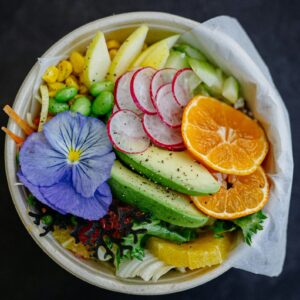Organic living isn’t always just about the food you put on your plate; it’s a holistic lifestyle that encompasses sustainability, eco-conscious choices, and a commitment to minimising your environmental footprint. In this blog post, we’ll dive into the world of sustainable living, covering eco-friendly practices and the principles of zero-waste living that complement your organic journey.
1. Mindful Consumption:
Sustainable living begins with conscious consumer choices. Embrace these principles to reduce your environmental impact:
Buy Quality Over Quantity: Invest in products that are built to last. Quality items may cost more upfront, but they often save you money in the long run and reduce waste.
Secondhand and Thrift Shopping: Consider buying secondhand clothing and goods to extend the life of items and reduce the demand for new production.
2. Eco-Friendly Practices:
Incorporate these eco-friendly practices into your daily life to live more sustainably:
Reduce, Reuse, Recycle: The classic three R’s still hold value. Minimise waste by reusing items and recycling whenever possible.
Composting: Turn your kitchen scraps and yard waste into nutrient-rich compost for your garden, reducing the amount of waste sent to landfills.
Energy Efficiency: Conserve energy by using energy-efficient appliances, turning off lights and electronics when not in use, and reducing water consumption.
3. Sustainable Transportation:
Transportation is a significant contributor to carbon emissions. Consider these sustainable options:
Walking and Biking: Opt for walking or biking when possible to reduce your carbon footprint and stay active.
Public Transportation: Use public transportation or carpool to reduce the number of vehicles on the road.
4.Zero-Waste Living:
zero-waste living is about minimising the waste you send to landfills. While achieving a true zero-waste lifestyle can be challenging, you can take steps in that direction:
Reusable Products: Switch to reusable items like cloth shopping bags, stainless steel straws, and glass containers to reduce single-use plastics.
Plastic-Free Shopping: Purchase products with minimal plastic packaging or bring your own containers to bulk stores.
Comprehensive Recycling: Ensure that you recycle paper, glass, plastic, and metal properly, and investigate recycling options in your area.
5. Sustainable Food Choices:
Incorporate sustainable food practices that align with your organic lifestyle:
Local and Seasonal: Support local farmers and reduce your carbon footprint by choosing seasonal, locally sourced produce.
Plant-Based Meals: Consider incorporating more plant-based meals into your diet to reduce the environmental impact of meat production.
Grow Your Own: Start a garden to grow your organic fruits and vegetables, reducing the need for transportation and packaging.
By integrating these sustainable practices into your organic lifestyle, you’ll not only reduce your environmental impact but also promote a healthier and more eco-friendly world. Remember, sustainability is a journey, and every small change makes a difference. As you implement these practices, you’ll find that living organically isn’t just a choice; it’s a commitment to a better, more sustainable future.











